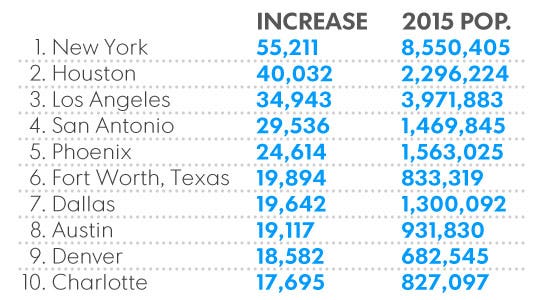Democrats and Republicans
Is the national Democratic Party trying to burn into extinction any hope that it is the party of the people? A couple of weeks ago, the word “recount” was on the lips of every mouthpiece. A week or so ago (and before and since), proposals to abolish the Electoral College were bruited. Now the drive is on to investigate Russia.
A ‘bipartisan’ alliance of the most comprehensively bought-and-sold members of Congress–led by Mitch “Big Tobacco” McConnell for the Repubs, Chuck “Big Banks” Schumer for Dems–has as of this writing signed on to allegations that Russia backed Julian Assange. Not surprisingly, entrenched Republican Senate hacks have joined ditto Dems in what is being hailed in some media outlets as an instance of bipartisan cooperation. (What these insiders chiefly have in common is that they were up-ended by Trump’s victory. This point is not being emphasized in the news media.)
Basically the claim seems to be that a) Russia hacked into U.S. Democrats’ emails, and that b) it did so to throw the election to Donald Trump. This is not a Q.E.D. It is preposterous. For one thing, the emails came from leaks, not from ‘hacking’. (Most in the McConnell-Schumer cohort would not likely know the difference.)
(The photograph is just for fun. Merry Christmas.)
So why would any Democratic office holder, let alone one of any prominence, sign on to this Cold-War-redux saturnalia? Well, a simple motive is that in fact some Dems in office really are threatened by populism, and by elections. Some, not all. But some are genuinely threatened by any possibility of base-broadening. They live in safe congressional districts, or states (Schumer), themselves. Why would they open up access, just because not doing so is a losing proposition? After all, the smaller the pie, the larger their own piece in proportion.
Another motive is the obvious denial. Blaming ‘Russia’ is another way to delay the reckoning about their hand-picked candidate, Secretary Clinton.* That it makes them look like lying imbeciles is a small price to pay. The previous efforts at denial didn’t work–yes, Trump won Michigan, Pennsylvania and Wisconsin; no, abolishing the Electoral College and throwing a whole campaign into California wouldn’t help. But there’s always another effort, and another. (Looming behind this one is the next, exhorting faithless Electors to throw away American history and just vote for someone other than President-elect Trump.)
CIA
Meanwhile, someone knocked on the right office door in halls of CIA, and found–predictably–the right leaks for their kind of investigation.
From those wonderful people who brought you the Iraq War
These are national party leaders? They don’t notice that they are leaving it to Trump to point out a fundamental fact? — “These are the same people that said Saddam had weapons of mass destruction.”
Fortunately, some CIA analysts still retain a more sensible perspective.
The news media
There is no point in listing all the media outlets now boosting the ‘Russia’ meme. Most of them also boosted the recounts. Almost all also tout Clinton’s popular vote lead without mentioning the massive vote total in California, thereby creating a vague impression that the national popular vote lead was across-the-board. The impression is false.
Clinton’s vote lead is IN CALIFORNIA
For the record, below is a sprinkling of the countless recent articles that refer to Clinton’s popular vote lead without mentioning that the numbers come disproportionately from California. This very quick list does not include television programs or online news aggregates, which would run the total into thousands. We may have a new conventional wisdom here, hardening like concrete before our very eyes. Or putting it a different way, we may have a spectacular example of a narrative fueled largely by reification, denial, and cross-cultural stereotyping taking on a life of its own inside national media outlets. (See ‘Russia’, above. Even the estimable Eugene Robinson seems to be getting on the bandwagon.)
Insert the words “IN CALIFORNIA” where needed:
New York Times, December 13: “Hillary Clinton’s growing lead over Donald J. Trump is now over 1 million votes, making this the second time a president has been elected without a popular majority since 2000.”
Chicago Tribune, December 12: “With almost all ballots finally counted, Hillary Clinton won the “popular” vote — that is, the total number of votes cast — by more than 2.8 million, about a 2.1 percent edge over Trump’s tally. This is a larger gap than the one in the 2000 election, when Al Gore won about a half-million votes more than George W. Bush did.”
Washington Post, December 12: “In the end, Clinton won the popular vote by more than 2.7 million votes, or 2 percent of all ballots cast.” (A bunch of WaPo writers have done the same; too many to list.)
International Business Times, December 12: “The latest popular vote totals Monday, as reported by nonpartisan election analysis group The Cook Report, show Clinton garnering 65,746,544 votes compared to Trump’s 62,904,682, a difference of more than 2.8 million votes. In percentages, Clinton’s locked down a plurality of 48.2 percent of the vote and Trump 46.2 percent.”
Mother Jones, December 7: “I figure it’s still worth periodically posting a reminder that far more people wanted Hillary Clinton as their president than Donald Trump.”
Time.com, December 1: “Hillary Clinton’s lead in total votes over President-elect Donald Trump has reached 2,526,184 as ballots continue to be tallied.”
What is the issue here, you ask? One issue is the credibility of major periodicals. When a big-city daily newspaper refers to Clinton’s popular vote lead without mentioning the massive four-thousand-vote lead in California, big newspapers lose even more credibility. Every thinking person who followed the election at all sees that item, or that headline about Hillary Clinton’s popular vote lead, and thinks, That’s mainly from California. But the self-styled analysts or pundits do not mention the obvious and valid point. The line from omission to distortion is short.
*I will deal more fully with the Clinton candidacy after the holidays, speaking of denial. It isn’t a very Christmas-like topic.





